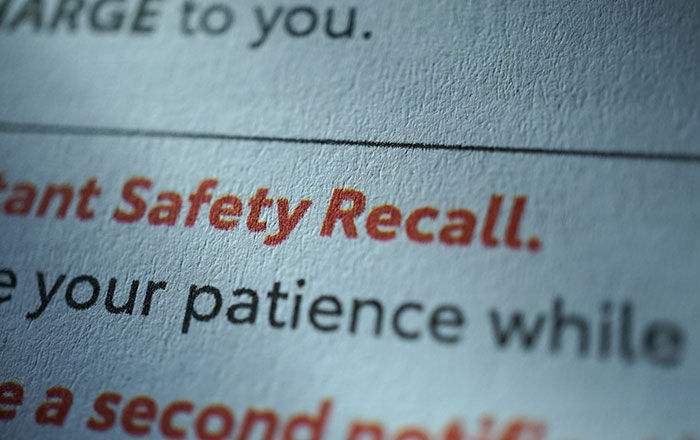
If you’ve been injured due to someone else’s negligence in South Carolina, time is not on your side. One of the most important legal deadlines you need to be aware of is the statute of limitations, a law that sets the maximum time after an event within which legal proceedings may be initiated. Failing to act within this time frame can cost you your right to recover compensation, no matter how strong your case might be.
South Carolina’s General Rule: Three Years
In South Carolina, the statute of limitations for most personal injury claims is three years from the date the injury occurred. This applies to a broad range of cases, including:
- Car and truck accidents
- Motorcycle crashes
- Slip and fall incidents
- Dog bites and animal attacks
- Injuries caused by defective products
- Medical malpractice (with caveats discussed below)
- Nursing home abuse and neglect
- Assault and battery (in the civil context)
This means that you have three years from the date of the incident to file a lawsuit in the appropriate court. If you attempt to file a lawsuit after this time has expired, the court will almost certainly dismiss your case, and you will lose the opportunity to recover damages for medical bills, lost wages, pain and suffering, and other losses related to the injury.
Why This Deadline Matters
The statute of limitations is not just a bureaucratic technicality, it’s a critical safeguard for defendants, but it can be a harsh barrier for injured plaintiffs. The law is designed to encourage timely and efficient resolution of legal claims while ensuring that evidence remains fresh. Waiting too long to pursue your claim may result in the loss of important physical evidence, difficulty locating witnesses, or faded memories that can weaken your case.
In practical terms, this deadline also affects how you interact with insurance companies. If insurers know you’ve let the statute expire, they have no incentive to offer a fair settlement, because you no longer have the threat of a lawsuit to back up your claim.
Exceptions and Special Circumstances
While three years is the general rule, there are important exceptions that can significantly shorten or, in some cases, extend the time you have to file a claim. Some of the most common exceptions include:
- Claims Against Government Entities
If your injury involves a government agency or employee, such as a city bus accident, an injury on government property, or misconduct by a public employee, South Carolina law requires that you follow a different set of rules under the South Carolina Tort Claims Act (SCTCA).
In these cases, you typically have only two years from the date of the injury to bring a claim. Additionally, special notice requirements may apply. If you do not properly notify the government agency involved, your claim could be barred entirely.
- Minors and Legally Incapacitated Persons
If the injured party is a minor (under 18) or is legally incapacitated at the time of the injury, the law may “toll” (pause) the statute of limitations until the individual reaches age 18 or regains legal capacity. After that, the standard three-year clock begins ticking. For example, a 16-year-old injured in a car crash may have until age 21 to file a lawsuit.
However, it’s always advisable to consult an attorney as early as possible to avoid complications with evidence and case strategy.
- Discovery Rule
In some cases, a person may not immediately realize they’ve been injured, especially in cases involving medical malpractice or toxic exposure. South Carolina follows a version of the “discovery rule,” which means that the statute of limitations begins to run when the injury is discovered, or reasonably should have been discovered, not necessarily when it actually occurred.
This rule can sometimes allow additional time to file a claim, but courts interpret it narrowly. For example, if someone had surgery and only found out two years later that a surgical sponge was left inside their body, the statute might begin from the date of discovery. However, once the injury is, or should be, known, the three-year clock begins to run.
- Wrongful Death Claims
If a loved one has died due to another party’s negligence, South Carolina law allows the deceased person’s estate to bring a wrongful death claim. In most cases, the statute of limitations for wrongful death is three years from the date of death, not the date of the incident that caused the death. This distinction can be crucial if there is a significant gap between injury and death.
- Workers’ Compensation
Workers’ compensation claims follow a completely different set of rules and time limits. Generally, you must notify your employer within 90 days of the injury and file a formal claim within two years. If your injury happened on the job, it’s best to speak with a lawyer to determine whether you have a valid workers’ compensation claim, a personal injury claim, or both.
What Happens If You Miss the Deadline?
Unfortunately, missing the statute of limitations usually means the end of your case. The court is obligated to dismiss the case if it’s filed too late, regardless of how compelling your facts are or how serious your injuries might be.
There are very few exceptions that can revive a claim once the statute has passed, and they typically involve fraudulent concealment by the defendant or other rare legal circumstances. That’s why acting quickly is so important.
Don’t Wait to Get Legal Help
Time may seem abundant right after an injury, but the clock starts ticking immediately. The longer you wait to speak with a lawyer, the more risk you take in weakening your case. Here’s why early legal intervention matters:
- Preserving Evidence: Your attorney can ensure that surveillance footage is requested before it’s erased, accident scenes are photographed, and witness statements are collected while memories are fresh.
- Protecting Your Rights: Insurance companies may push you to settle early, delay your claim, or ask for statements that could later be used against you. A lawyer can shield you from these tactics.
- Meeting Legal Deadlines: An attorney knows exactly how to calculate the statute of limitations and how to handle any exceptions that may apply to your case.
- Developing a Strategy: Many personal injury claims involve complex legal and medical issues. Your attorney will coordinate with medical experts, investigators, and other professionals to build a strong case.
Contact McWhirter, Bellinger & Associates Today
At McWhirter, Bellinger & Associates, we understand how overwhelming it can be to deal with a serious injury, mounting medical bills, and uncertainty about your future. That’s why we offer free, no-obligation consultations to help you understand your rights and legal deadlines.
We’ve helped countless South Carolinians get the compensation they deserve for injuries caused by negligence. Whether your case involves a car accident, fall, workplace injury, or wrongful death, we’ll help you navigate the statute of limitations and make sure your claim is filed on time.
Remember: you don’t have to pay us anything unless we recover money for you. We’re here to fight for your rights, so don’t delay.
Call McWhirter, Bellinger & Associates today to schedule your free consultation. It won’t cost you anything to see if we can help.















